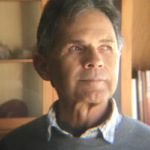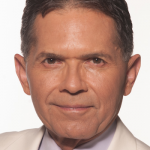
I can recall evenings sitting around the new television in the home I shared with my parents and siblings in the 1950s. The TV with a small screen that displayed black-and-white images was a new and wondrous phenomenon for Americans, who were just beginning to experience it. My father seemed enthralled by the magic of images beamed from across Los Angeles to the antenna mounted on our roof and into the television—that mysterious apparatus that was powered by glowing red vacuum tubes and voltages that could kill a horse.

